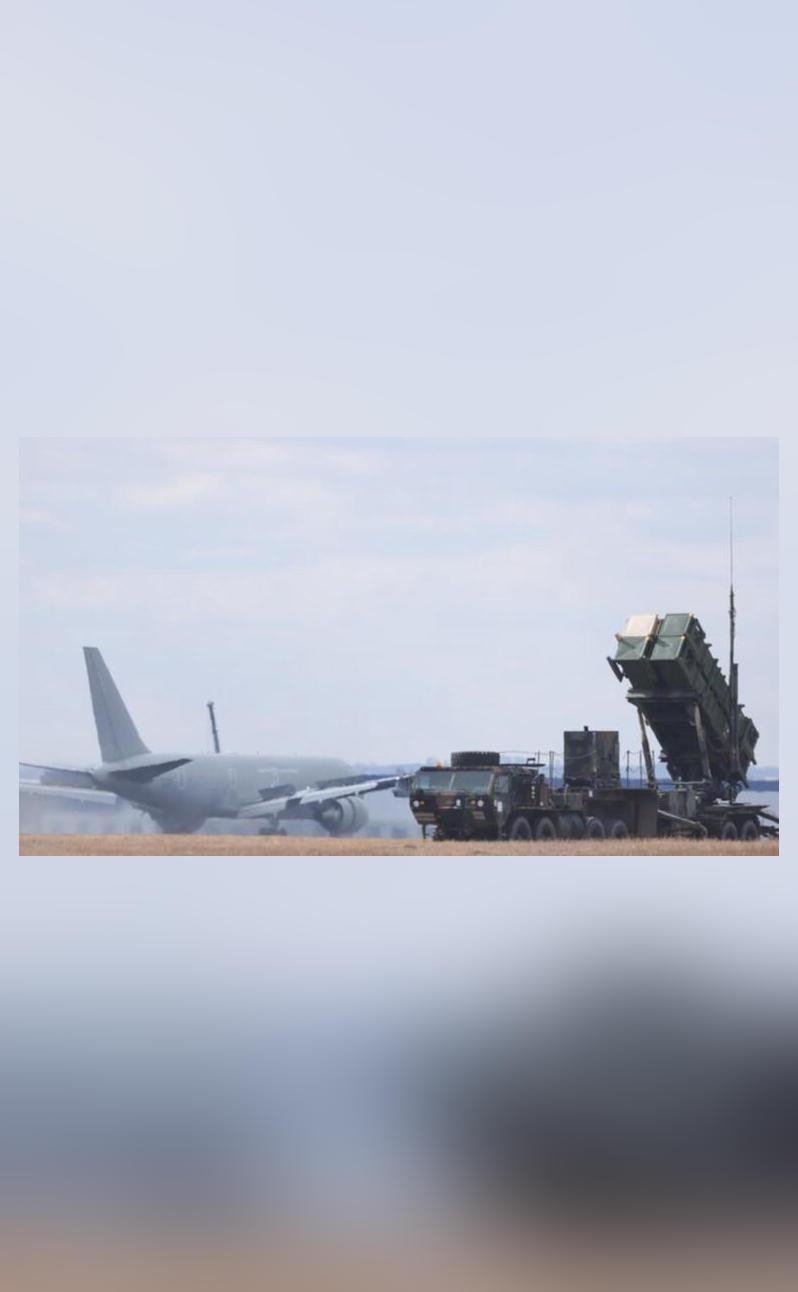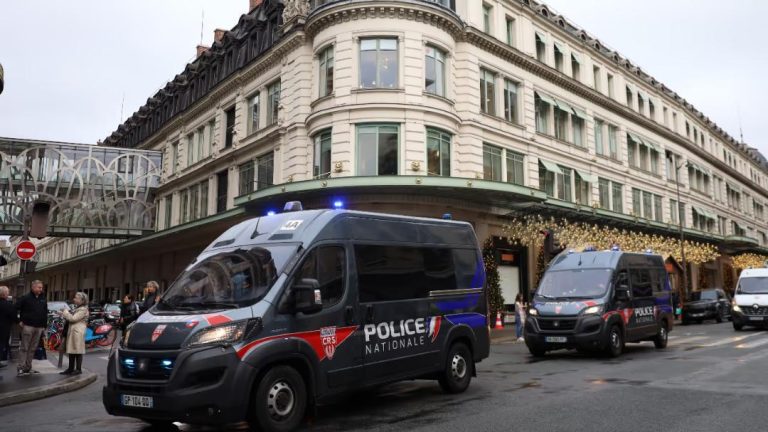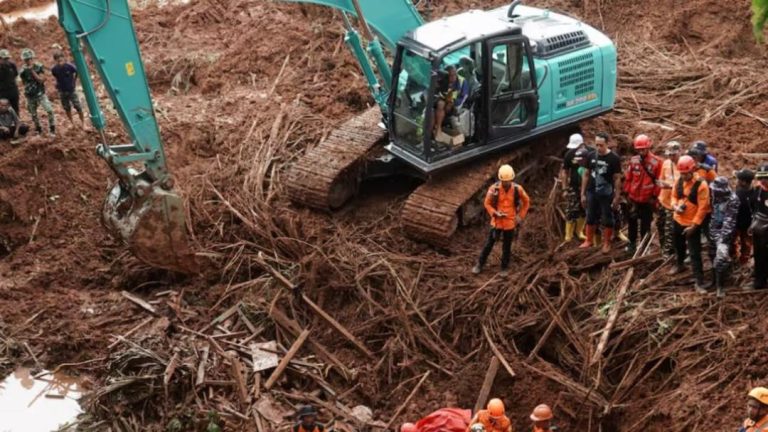
Ukraine, NATO treating our infra as if it’s their own: Poland
In a recent development that has sent shockwaves across the international community, Poland’s President Andrzej Duda has accused Ukraine and NATO of treating Poland’s infrastructure as if it were their own. The allegations have sparked a heated debate about the role of Poland in the ongoing conflict between Ukraine and Russia, and the country’s President has threatened to shut down Poland’s main transit hub for Western military aid to Ukraine.
According to President Duda, Poland has not been included in key international bodies responsible for decisions on aid delivered via Polish territory. This lack of involvement has led to a sense of frustration and resentment among the Polish public, who feel that their country is being taken for granted by its allies.
The main transit hub in question is the airport in the city of Rzeszow, which is used to transport military equipment and supplies from Western countries to Ukraine. The airport has become a crucial link in the supply chain for the Ukrainian military, and its closure would have significant implications for the country’s ability to withstand the ongoing conflict.
The Polish President’s accusations have been met with a mixture of surprise and outrage from some quarters, with some arguing that Poland is being overly sensitive and that its concerns are unfounded. However, others have expressed solidarity with Poland and have called for greater transparency and accountability in the decision-making process surrounding the aid being delivered to Ukraine.
So, what prompted President Duda to make these allegations, and what does this mean for the future of Poland’s relationship with Ukraine and NATO?
To understand the context of the situation, it is necessary to take a step back and consider the broader geopolitical landscape. The conflict between Ukraine and Russia has been ongoing for several years, and has escalated in recent months with the involvement of Western countries and their military aid.
Poland, as a key ally of the West, has been involved in the conflict from the outset, and has provided significant support to Ukraine in the form of military aid and training. However, the country has also been critical of what it sees as a lack of transparency and accountability in the decision-making process surrounding the aid being delivered to Ukraine.
President Duda’s accusations are the latest in a series of tensions between Poland and Ukraine, which have been escalating in recent months. In May, Ukraine’s President Volodymyr Zelensky sparked outrage in Poland by announcing plans to rename a street in Kiev after a Polish-born Ukrainian nationalist who played a key role in the country’s independence movement.
The renamings of streets, monuments, and other public spaces are a common occurrence in Ukraine, and are often seen as a way to honor the country’s history and heritage. However, in this case, the decision was seen as a deliberate provocation by Poland, which had previously been concerned about the use of Polish symbols and imagery in Ukraine.
The situation came to a head in June, when Poland’s Prime Minister Mateusz Morawiecki announced that his country would be suspending its participation in the European Union’s Eastern Partnership program, which aims to promote economic integration and cooperation between the EU and six Eastern European countries, including Ukraine.
The decision was seen as a major blow to the program, which has been a key component of the EU’s foreign policy in the region. It was also seen as a response to what Poland saw as a lack of recognition of its concerns and interests by the EU and other international organizations.
In this context, President Duda’s accusations about Ukraine and NATO treating Polish infrastructure as if it were their own can be seen as a natural extension of Poland’s broader concerns about its role in the conflict and its relationship with its allies.
The Polish President’s accusations have been met with a mixture of surprise and outrage from some quarters, with some arguing that Poland is being overly sensitive and that its concerns are unfounded. However, others have expressed solidarity with Poland and have called for greater transparency and accountability in the decision-making process surrounding the aid being delivered to Ukraine.
In a statement, the Ukrainian government denied any wrongdoing and accused Poland of trying to “politicize” the issue. NATO also distanced itself from the situation, saying that it was a matter for Poland and Ukraine to resolve bilaterally.
However, the situation remains tense, and it is unclear what the future holds for Poland’s relationship with Ukraine and NATO. In the meantime, the Polish President’s accusations have sparked a heated debate about the role of Poland in the conflict and its relationship with its allies.
The situation also raises important questions about the role of infrastructure in conflict zones, and the need for greater transparency and accountability in the decision-making process surrounding military aid and supply chains.
As the situation continues to unfold, it will be important for all parties involved to work towards a resolution that takes into account the concerns and interests of all parties. This will require a willingness to listen and to compromise, as well as a commitment to transparency and accountability.
In conclusion, President Duda’s accusations about Ukraine and NATO treating Polish infrastructure as if it were their own have sparked a heated debate about the role of Poland in the conflict and its relationship with its allies. The situation raises important questions about the role of infrastructure in conflict zones, and the need for greater transparency and accountability in the decision-making process surrounding military aid and supply chains.
As the situation continues to unfold, it will be important for all parties involved to work towards a resolution that takes into account the concerns and interests of all parties. This will require a willingness to listen and to compromise, as well as a commitment to transparency and accountability.
News Source: https://www.rt.com/russia/621293-poland-close-ukraine-aid-hub/amp/






